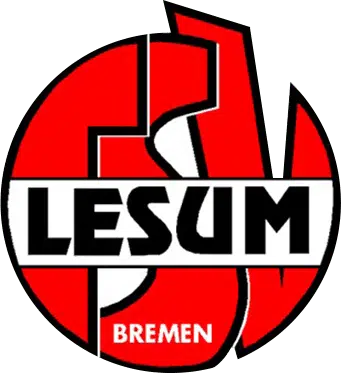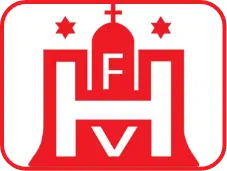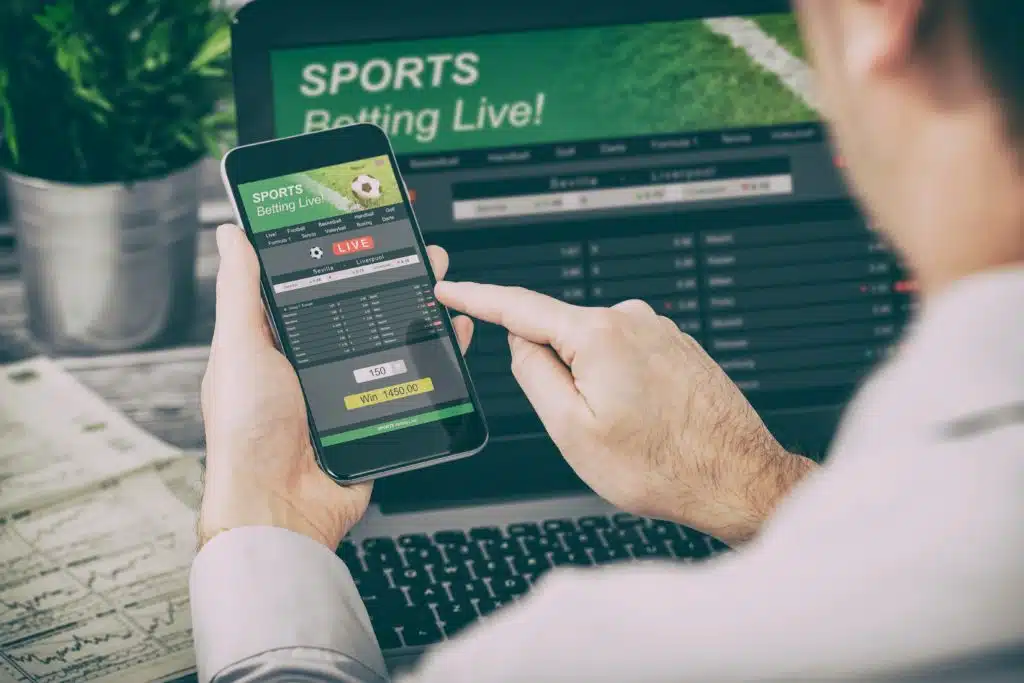With Press release aus Januar hat der Bundesgerichtshof die Verhandlung über die „Erstattung von Verlusten bei unerlaubten Sportwetten“ für den 7. März 2024 angekündigt. Das Verfahren stößt auf reges Interesse bei betroffenen Spielern und ihren anwaltlichen Vertretern.
Gerade erst im Dezember 2023 hat der Beauftragte der Bundesregierung für Sucht- und Drogenfragen im Glücksspielatlas zusammengefasst, dass etwa 1,3 Millionen Deutsche eine Glücksspielstörung haben:
„Etwa jede*r dreizehnte Glücksspieler*in entwickelt durch die Teilnahme an Automatenspielen, Sportwetten und anderen Glücksspielen gesundheitliche, finanzielle oder auch soziale Probleme. In vielen Fällen sind diese so massiv, dass Familien zerstört und Existenzen vernichtet werden.“
and further:
„Und gerade bei Sportwetten sollten der Werbung schnellstmöglich engere Grenzen gesetzt werden. Es muss einfach Schluss sein mit den Sportwetten-Spots vor, nach und während der Sportberichterstattung selbst im Nachmittags- und Frühabendprogramm. Niemand will das, niemand braucht das und niemandem tut das gut.“
Gamesright – Pionier für Sporwettenrückforderungen
The litigation funder Gamesright is known as official 05 partner des Fußball-Erstligisten Mainz 05. Er hat bereits an die 2.000 deutsche Glücksspieler an spezialisierte Rechtsanwälte vermittelt. Gamesright bietet den Kauf von Rückzahlungsansprüchen an und finanziert deren Durchsetzung, auch in Fällen, in denen es um Rückforderungen unter 5.000 Euro geht. Mit etlichen Verfahren aus 2021 ist Gamesright ein Pionier für Sporwettenrückforderungen. Eines dieser Verfahren wird nun vor dem Bundesgerichtshof verhandelt. Das auf den ersten Blick unscheinbare Verfahren ist der Gipfel eines langen Streits zwischen Sportwettenanbietern, Lizenzierungsbehörden und Spielern. Wie kam es dazu?
Gefestigte Rechtsprechung für Automatenspiele
Wohl jeder kennt die großen staatlichen Casinos und auch die angestaubt anmutenden Spielautomaten in Gaststätten. Viele Glücksspiele können in besonderen Einrichtungen unter strengen Auflagen erlaubt werden. Dies gilt allerdings nicht für Automatenspiele im Internet, oft auch als Online-Casino bezeichnet. Diese waren bis Mitte 2021 ausnahmslos verboten und sind es ohne Erlaubnis bis heute. Nachdem es unzählige Streitigkeiten im Verwaltungs- und Europarecht um die Wirksamkeit dieses Verbots gegeben hat, wurde bald vornehmlich darum gerungen, ob Spieler ihre Einzahlungen zurückverlangen können. Nach zunächst uneinheitlicher Rechtsprechung mit dem wohl ersten Urteil im Oktober 2020 sind sich die Oberlandesgerichte heute einig, dass Spieler grundsätzlich Anspruch auf Rückzahlung haben. Die Anbieter hätten ihr Geld nicht annehmen dürfen. Dass die Spieler es auch nicht hätten einzahlen dürfen, konnten und mussten diese nicht wissen.
In Österreich ist dies bis zum obersten Gerichtshof geklärt, in Deutschland gibt es bislang keine entsprechende Entscheidung des Bundesgerichtshofs. Letzterer hat gerade mit Beschluss vom 10. Januar 2024 – I ZR 53/23 eine solche Entscheidung ausgesetzt. In diesem Verfahren geht es entsprechend der Press release um die Erstattung von Verlusten bei verbotenen Online-Pokerspielen (einem Casinospiel, im Gegensatz zu Automatenspielen und Sportwetten), die seit 2021 erlaubnisfähig sind. Der Grund für die Aussetzung ist ein Vorlageverfahren Maltas mit sieben Fragen zum Europäischen Gerichtshof. Dies wartet der BGH ab. Ein Geschmäckle hat die Sache, da der verklagte Anbieter selbst angeblich die Klage in Malta initiiert haben soll, um eine mögliche Rückforderungswelle auszubremsen.
The Federal Court of Justice has not suspended the sports betting proceedings at issue here.
Dies liegt vermutlich daran, dass die Sache mit Online-Sportwetten etwas anders liegt. Bis 2008 bestand in Deutschland ein Sportwettenmonopol. Der Staat („Oddset“) durfte Sportwetten online anbieten, im Gegensatz zu privaten Veranstaltern. Der Europäische Gerichtshof entschied, wenn ein Anbieter dieses Recht hat, müssen es alle bekommen. Diese Öffnung hielt der Gesetzgeber für unverantwortlich (vergleiche Glücksspielatlas) und hat Online-Sportwetten 2008 vollständig verboten, auch für den Staat.
Dessen ungeachtet boten Sportwetten-Konzerne ihre Wetten über das Internet exzessiv an, zumeist aus dem europäischen Ausland. Dem war schwer beizukommen. Um dem illegalen Sportwettgeschäft Einhalt zu gebieten, einigten sich die Bundesländer 2012 auf den 1. Glücksspielstaatsvertrag (GlüStV). Damit sollte die Liberalisierung von Online-Glücksspielen vorsichtig erprobt und zunächst Online-Sportwetten als bedeutendster Teilmarkt in geregelte Bahnen gelenkt werden. Erlaubnisfähig sollten damit Einzel- und Kombiwetten sein, jedoch beispielsweise keine Wetten auf Ereignisse während laufender Spiele, sogenannte Ereigniswetten. Daneben durften die Anbieter Einsätze von nicht mehr als 1.000 Euro im Monat von Spielern annehmen. Der Gesetzgeber hatte dabei das Suchtpotential und den Spielerschutz im Blick. Bis zu 20 Anbieter sollten zu Experimentierzwecken Ausnahmegenehmigungen für Sportwetten im Internet erhalten können.
Gegen diese Beschränkung auf 20 Konzessionen klagten etliche nicht-berücksichtigte Anbieter erfolgreich und verhinderten die Lizenzvergabe. Ihr standen constitutional concerns gegen die Wirksamkeit des Gesetzes (die mangelnde demokratische Legitimation als Landessache) und nachrangig (nur für den Fall der Wirksamkeit) europarechtliche Bedenken gegen die Transparenz des Konzessionsverfahrens entgegen.
The total ban on online sports betting from 2008 was valid until 2020
Der von den Anbietern gern als „Grauzone“ bezeichnete Zustand bestand damit fort. Vor allem Anbieter aus Malta, Gibraltar und Curacao dominierten ohne deutsche Erlaubnis den Markt der nach dem Gesetz verbotenen Online-Sportwetten. 2018 misslang die Einigung auf den „Zweiter Staatsvertrag zur Änderung des Glücksspielstaatsvertrages“, der nicht von allen Bundesländern ratifiziert wurde.
Mit dem Dritten Glücksspieländerungsstaatsvertrag wurde 2020 die Beschränkung auf 20 Anbieter aufgehoben. Die Anbieter konnten 2020 neue, vom gescheiterten Vergabeverfahren unabhängige Anträge stellen. Doch das Gesetz begegnete erneut durchgreifenden Bedenken, insbesondere in Bezug auf die Transparenz des Genehmigungsverfahrens. Nachdem diese ausgeräumt waren, wurden im Oktober 2020 die ersten Konzessionen für Online-Sportwetten vergeben.
Sports betting in the midst of society
Obwohl sich einige Anbieter 2013 um die Erlaubnis beworben hatten, konnten sie diese bis Ende 2020 nicht erhalten. Unglücklich wäre eine Untertreibung. Ungeachtet dessen haben viele Anbieter bereits unter der Geltung des Totalverbots ihre Online-Wetten angeboten. Dies hat sich 2013 nicht geändert, ob sie nun einen Erlaubnisantrag gestellt hatten oder nicht. Sie haben ihre verbotenen Online-Wetten auf Deutsch betrieben und ausgiebig in Deutschland in dem Wissen beworben, dass diese ohne Lizenz verboten sind. Dabei wurden sie von Prominenten, Fußballstars, Vereinen und Verbänden unterstützt. Online-Sportwetten, ein controversial grundsätzlich verbotenes Geschäft, in dem es vor allem um sehr viel Geld geht. Dieses Geld stammt von den Spielern, von denen 1,3 Millionen Deutsche eine Glücksspielstörung haben (s.o.).
There is a struggle over the consequences. As with online casinos and online slot machines, several higher regional courts have now ruled in favor of players when it comes to sports betting. The difference between deposits and withdrawals must be reimbursed.
Decisions against this provider
Der Anbieter, gegen den nun vor dem Bundesgerichtshof verhandelt wird, ist erst kürzlich in einem Urteil vor einem Oberlandesgericht unterlegen. Das Verfahren wurde von Gamesright finanziert. Vor einem anderen Oberlandesgericht hat der Anbieter eine Berufung zurückgenommen, nachdem das Gericht mitgeteilt hat, es werde sie abweisen. Ein weiteres Oberlandesgericht hat just mitgeteilt, es beabsichtige, eine Berufung desselben Anbieters zurückzuweisen. Zu der jüngsten Verhandlung vor einem Oberlandesgericht ist für den Anbieter niemand erschienen und es wurde ein Versäumnisurteil beantragt. Die von Gamesright vermittelten Rechtsanwälte gehen also erfolgreich gegen diesen Anbieter vor. Demgegenüber gibt es keine hier bekannten obergerichtlichen Urteile zu Gunsten dieses, noch eines anderen Online-Sportwettenanbieters.
What is the issue before the Federal Court of Justice?
Anfang 2022, als es erst sehr wenige Entscheidungen in Sportwettsachen gab, hat in erster Instanz das Amtsgericht Geislingen auf der Steige entschieden und die Klage abgewiesen. Der Streitwert beträgt „nur“ 3.719,26 Euro aus dem Zeitraum 2013 bis Oktober 2020. Die Begründung misst keine ganze Seite: Das Fehlen der Erlaubnis habe kein Hindernis für das Anbieten von Sportwetten dargestellt, was sich aus einer Entscheidung des Oberverwaltungsgerichts für das Land Nordrhein-Westfalen vom 23.01.2017, 4 A 3244/06 ergebe. Der Anbieter habe zudem am Konzessionsverfahren teilgenommen. Das Verwaltungsgericht Wiesbaden (5 K 1388/14 WI) habe den Anspruch auf Konzessionserteilung bejaht.
Die Ausführungen zum klägerischen Vortrag, in einem konkreten Monat habe der Anbieter Einzahlungen von mehr als 1.000 Euro angenommen, was gegen § 4 Abs. 5 Ziffer 2 GlüStV a.F. verstoßen habe, ließ das Amtsgericht unberücksichtigt.
The appeal proceedings before the Regional Court
Gegen das Urteil hat der Kläger Berufung vor dem Landgericht Ulm eingelegt. Die Entscheidung des Oberverwaltungsgerichts trage das Urteil ersichtlich nicht, da es dort um einen Fall aus dem Jahr 2005 ging und die Rechtslage unter der Geltung des GlüStV 2012 lange überholt sei.
Übersehen hat das Amtsgericht, dass der Hessische Verwaltungsgerichtshof das Urteil des VG Wiesbaden mit Einstellungsbeschluss vom 08.12.2021 für wirkungslos erklärt hat. Bereits zuvor hatte der Hessische VGH in seinem Beschluss vom 11.10.2019 festgestellt, dass die Klage auf Erlaubniserteilung keine Aussicht auf Erfolg haben würde.
Es könne auch dahinstehen, ob die Anbieterin der Sportwetten grundsätzlich einen Anspruch auf Erteilung einer Konzession gehabt hätte. Denn faktisch sei die Konzessionserteilung nicht möglich gewesen und auch in Folge des Urteils nicht erfolgt. Ein möglicher Anspruch auf Konzessionserteilung ersetze nicht die Erteilung selbst. Außerdem habe die Beklagte nicht nur Einzel-Sportwetten ohne Lizenz angeboten, sondern auch Live- und Ereigniswetten. Diese Angebote gingen über die im Konzessionsvergabeverfahren beantragten Angebote hinaus und seien generell nicht genehmigungsfähig. Die Anbieterin habe auch Einzahlungen von mehr als 1.000 EUR angenommen.
Das Landgericht hat die Berufung zurückgewiesen
Es hat ausgeführt, der Verstoß eines Veranstalters gegen das Verbot nach § 4 Abs. 1 S. 2 Fall 1 GlüStV a.F. durch das Veranstalten der Online-Sportwetten führe hier nicht zur Nichtigkeit des Vertrags über Online-Sportwetten. Die inhaltlichen Voraussetzungen für eine Erlaubniserteilung hätten zu Gunsten des Anbieters vorgelegen (dabei bezog es sich wohl auf das nicht für Dritte wirkende und aufgehobene Urteil des VG Wiesbaden, s.o.). Es habe kein zulässiges Erlaubnisverfahren gegeben, da dieses gegen Europarecht verstoßen habe. Bezüglich der Rechtsfolgen der europarechtlichen Einwände sei die Rechtsprechung des Oberverwaltungsgerichts N-W auf diesen Fall zu übertragen.
Für die Vermittlung von Sportwetten habe der Europäische Gerichtshof bereits entschieden, dass dies nicht zu einer strafrechtlichen Sanktionierung führen dürfe. Verwaltungsrechtlich hätten das BVerwG, das OVG Münster und der VGH Kassel dementsprechend die fehlende deutsche Erlaubnis nicht als Hinderungsgrund für die Vermittlung von Sportwetten angesehen. Dies müsse nicht nur für die Vermittlung, sondern auch für die Veranstaltung von Sportwetten im Internet gelten.
Über die Fragen, ob die Einzahlungen von monatlich über € 1.000 und die Veranstaltung von ausnahmslos unzulässigen Live- und Ereigniswetten zur Nichtigkeit des Wettvertrages führen würden, hat das Landgericht nicht entschieden.
Die Revision zum Bundesgerichtshof wurde zugelassen. Diese hat der Kläger form- und fristgemäß eingelegt.
Legal classification
Vor dem Bundesgerichtshof könnte nun die grundlegende Rechtsfrage zu Rückforderungen aus Online-Sportwetten abschließend geklärt werden:
Ist die Rückforderung vom Anbieter ohne Erlaubnis berechtigt, oder steht ihr der bloße Antrag auf Erlaubnis entgegen, obwohl dieser aufgrund of the faulty Concession award procedure was not granted?
So wie das Berufungsgericht haben einige Amts- und Landgerichte einen Rückforderungsanspruch verneint unter dem Gesichtspunkt der „Einheitlichkeit der Rechtsordnung“. Es liege ein Wertungswiderspruch vor, wenn ein Verhalten zivilrechtlich rückabgewickelt werden könnte, obwohl es verwaltungsrechtlich geduldet worden sei und strafrechtlich nicht verfolgt werden könne.
Uniform opinion of the higher regional courts
Mittlerweile hat sich unter den Oberlandesgerichten die einhellige Meinung gebildet, dass die Einheitlichkeit der Rechtsordnung zivilrechtlichen Ansprüchen wie denen im vorliegenden Fall nicht entgegensteht. Aus guten Gründen:
Ordnungsrechtliches Vorgehen wäre jederzeit möglich gewesen
Die Rechtsmeinung, wonach verwaltungsrechtlich kein Vorgehen gegen Online-Sportwetten möglich gewesen sei, ist längst überholt. Eine Duldung der Angebote hat es nach heutigem Stand grundsätzlich nicht gegeben. Die Behörde wäre auch gar nicht zur Duldung berechtigt gewesen. Das Bundesverwaltungsgericht hat schon 2017 entschieden, dass es mit Unions- und Verfassungsrecht vereinbar ist, dem Anbieter von Online-Sportwetten im glücksspielrechtlichen Untersagungsverfahren das Fehlen der erforderlichen Erlaubnis entgegenzuhalten. Es entschied 2018, dass ein Absehen von repressiven Maßnahmen einer Legalisierungswirkung nicht gleichkommt und unionsrechtlich nicht geboten ist. Es entschied weiter:
„Ein Anspruch auf Erteilung einer konzessionsunabhängigen Erlaubnis für die Vermittlung von Sportwetten lässt sich weder dem Glücksspielstaatsvertrag noch dem Unionsrecht entnehmen.“
No hindrance to national prosecution
Die sogenannte „Ince“ Rechtsprechung des Europäischen Gerichtshofs ist auf Online-Sportwetten nicht übertragbar. Diese setzt voraus, dass ein staatliches Monopol vorliegt und privaten Anbietern der Zugang zu einem für den Staat geöffneten Markt verwehrt wird. Der EuGH hat sich in unter diesem Gesichtspunkt damit auseinandergesetzt, ob eine internationale Strafverfolgung der im Inland strafbaren terrestrischen Sportwettvermittlungen (im Ladenlokal) möglich ist.
Ander als in der dort zu beurteilenden Situation gab es unter der Geltung des Glücksspielstaatsvertrags von 2012 gerade kein Monopol des Staates und keine Diskriminierung privater Anbieter. Die EuGH-Rechtsprechung dürfte damit zumindest einer nationalen Strafverfolgung nicht mehr im Wege gestanden haben. Entsprechend hat der BGH im letzten Jahr die fehlende Legalisierungswirkung der Ince Grundsätze für das Zivilrecht festgestellt. Ein Wertungswiderspruch zwischen 1. der gehinderten internationalen Strafverfolgung bei Vorliegen eines Monopols zu 2. zivilrechtlichen Rückforderungsansprüchen bei geschlossenem Markt liegt nicht vor.
Zuvor hatte bereits das Oberverwaltungsgericht Lüneburg in Bezug auf das (im Ergebnis nicht europarechtswidrige) Internetverbot entschieden, dass kein Anspruch auf verwaltungsrechtliche Duldung der unerlaubten Tätigkeit besteht, unabhängig von der Frage strafrechtlicher Sanktionsmöglichkeiten im Falle des Verstoßes gegen den Erlaubnisvorbehalt.
Jurisprudence on sports betting monopoly no longer applicable
Das Landgericht hatte in der Vorinstanz übersehen, dass die rechtliche Situation aus 2005 erhebliche Unterschiede zu derjenigen ab 2012 aufweist. 2005 waren Sportwetten durch den Staat gesetzlich erlaubt, es gab ein Sportwettenmonopol. Dieses wurde als europarechtswidrig eingestuft. Da ein staatlicher Anbieter Sportwetten anbieten durfte, durften private Anbieter nicht schlechter behandelt werden als dieser.
Der Gesetzgeber hat darauf reagiert und das Monopol 2008 abgeschafft. Statt den Markt zu öffnen galt fortan ein Totalverbot, sowohl für den Staat, als auch für private Anbieter.
Der in 2012 eingeführte Erlaubnisvorbehalt zum grundsätzlichen Verbot, die Experimentierklausel, dürfte allerdings unwirksam gewesen sein, da das Gesetzgebungsverfahren gegen Verfassungsrecht verstoßen hatte (vgl. Hessian VGH). Der Grund der Suspendierung der Lizenzerteilungen lag im Verstoß gegen das Bundesstaats- und Demokratieprinzip. Heute wird zudem das Konzessionsvergabeverfahren selbst überwiegend als europarechtswidrig eingestuft wegen der Intransparenz von Vergabekriterien. Dies war seinerzeit allerdings nicht ausschlaggebend für den Stopp der Konzessionsvergabe.
Dass keine Erlaubnisse erteilt werden konnten führte jedoch – anders als unter den Bedingungen von vor 2008 (Sportwettemonopol, Diskriminierung) – nicht zur Öffnung für alle Anbieter. Im Gegenteil, im verbleibenden Verbot liegt eine Gleichbehandlung aller Anbieter, wie sie bereits ab der Rechtslage seit 2008 bestand. Aus dem Glücksspielstaatsvertrag 2012 ist der gesetzgeberische Wille klar erkennbar, den Markt grundsätzlich geschlossen zu halten. Dies hatte er bereits mit der Abschaffung des Monopols demonstriert.
Die Gerichte prüfen daher heute ganz überwiegend, ob eine Konzession erteilt wurde. Wetten ohne bestehende Erlaubnis werden als unwirksam betrachtet und den Rückforderungsklagen stattgegeben.
Conclusion
Das Verfahren vor dem Bundesgerichtshof könnte weitreichende Folgen für die Online-Glücksspielbranche haben. Es könnte zudem Auswirkungen auf die Verflechtung mit dem Profisport haben, die sich bisher kaum absehen lassen.
The media are invited to the hearing on March 7, 2024 and image and sound recordings are permitted.
Please direct inquiries to: [email protected]
Sie möchten eine Rückforderung finanzieren lassen, oder Ihre Forderung verkaufen? Nutzen Sie bitte unser Antragsformular auf www.gamesright.com





